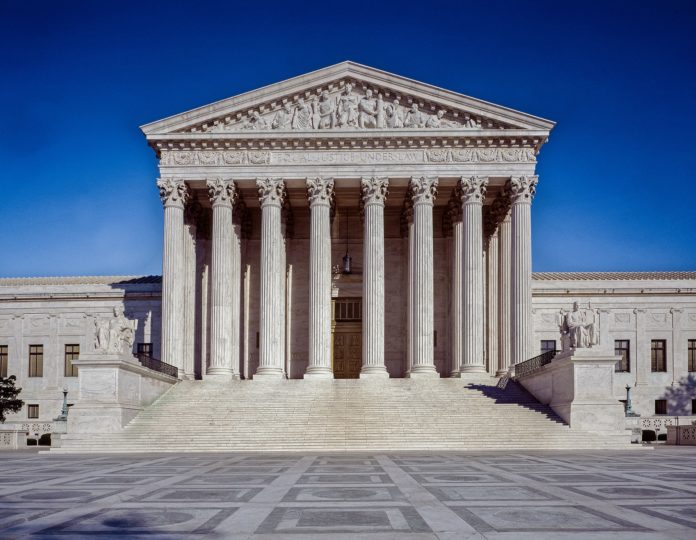

Editor’s Note: Law Week Colorado edits court opinion summaries for style and, when necessary, length.
Last September, about six months before the March 5 Colorado primary election, four Republican and two unaffiliated Colorado voters filed a petition against former President Donald Trump and Colorado Secretary of State Jena Griswold in Colorado state court. These voters contended after Trump’s defeat in the 2020 Presidential election, he disrupted the peaceful transfer of power by intentionally organizing and inciting the crowd that breached the Capitol as Congress met to certify the election results on Jan. 6, 2021, according to the opinion. The petitioners asserted Trump is constitutionally ineligible to serve as president again under the provisions of Section 3 of the 14th Amendment.
Section 3 provides: “No person shall be a Senator or Representative in congress, or elector of President and Vice President, or hold any office, civil or military, under the United States, or under any State, who, having previously taken an oath, as a member of congress, or as an officer of the United States, or as a member of any State legislature, or as an executive or judicial officer of any State, to support the Constitution of the United States, shall have engaged in insurrection or rebellion against the same, or given aid or comfort to the enemies thereof. But congress may by a vote of two-thirds of each House, remove such disability.”
According to the respondents, Section 3 applies to the former president because after taking the presidential oath in 2017, he intentionally incited the breaching of the Capitol on Jan. 6, 2021, in order to retain power. They claimed he is therefore not a qualified candidate, and that as a result, the Colorado secretary of state may not place him on the primary ballot.
After a five-day trial, the state District Court found Trump had “engaged in insurrection” within the meaning of Section 3, but nonetheless denied the respondents’ petition. The court held Section 3 didn’t apply because the presidency, which Section 3 doesn’t mention by name, is not an “office . . . under the United States” and the president isn’t an “officer of the United States” within the meaning of that provision.
In December, the Colorado Supreme Court reversed in part and affirmed in part by a 4-3 vote. Reversing the District Court’s operative holding, the majority concluded for purposes of Section 3, the presidency is an office under the U.S. and the president is an officer of the U.S. The court otherwise affirmed, holding the Colorado Election Code permitted the respondents’ challenge based on Section 3; Congress need not pass implementing legislation for disqualifications under Section 3 to attach; the political question doctrine didn’t preclude judicial review of Trump’s eligibility; the District Court didn’t abuse its discretion in admitting into evidence portions of a congressional report on the events of Jan. 6, 2021; the District Court didn’t err in concluding those events constituted an “insurrection” and that Trump “engaged in” that insurrection; and Trump’s speech to the crowd that breached the Capitol on Jan. 6, 2021, wasn’t protected by the First Amendment.
The Colorado Supreme Court ordered Griswold not to “list President Trump’s name on the 2024 presidential primary ballot” or “count any write-in votes cast for him.” Chief Justice Brian Boatright and Justices Carlos Samour and Maria Berkenkotter each filed dissenting opinions. Under the terms of the opinion of the Colorado Supreme Court, its ruling was automatically stayed pending the U.S. Supreme Court’s review. The Supreme Court granted Trump’s petition for certiorari, which raised a single question: “Did the Colorado Supreme Court err in ordering President Trump excluded from the 2024 presidential primary ballot?” Concluding that it did, the U.S. Supreme Court reversed.
The Supreme Court ruled that responsibility for enforcing Section 3 against federal officeholders and candidates rests with Congress and not the states, the opinion noted.
All nine members of the high court agreed. The judgment of the Colorado Supreme Court was reversed.

